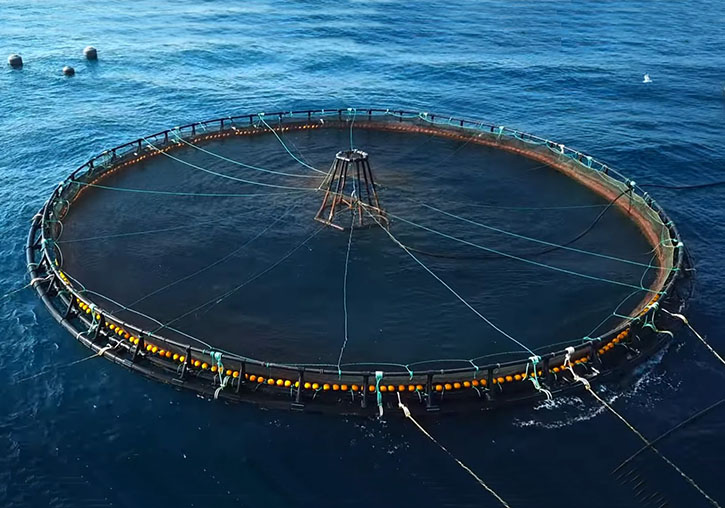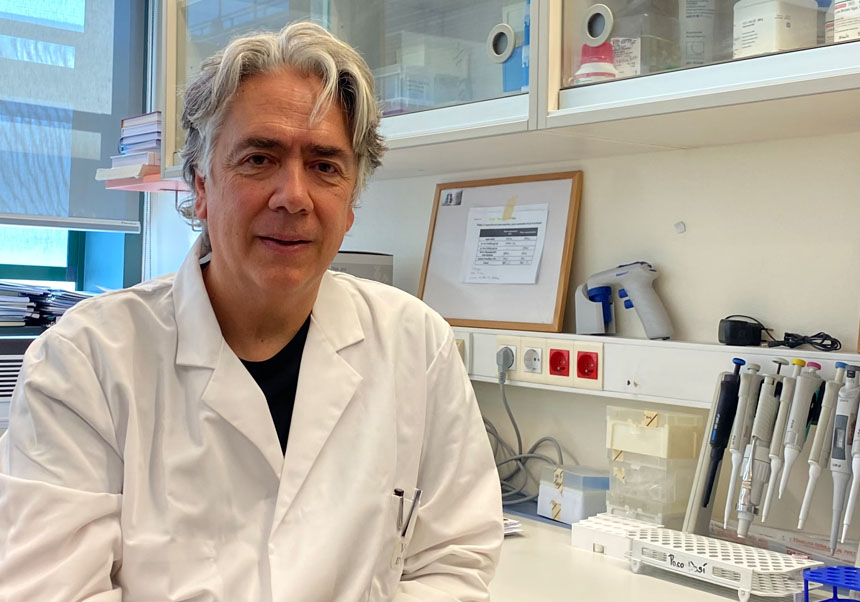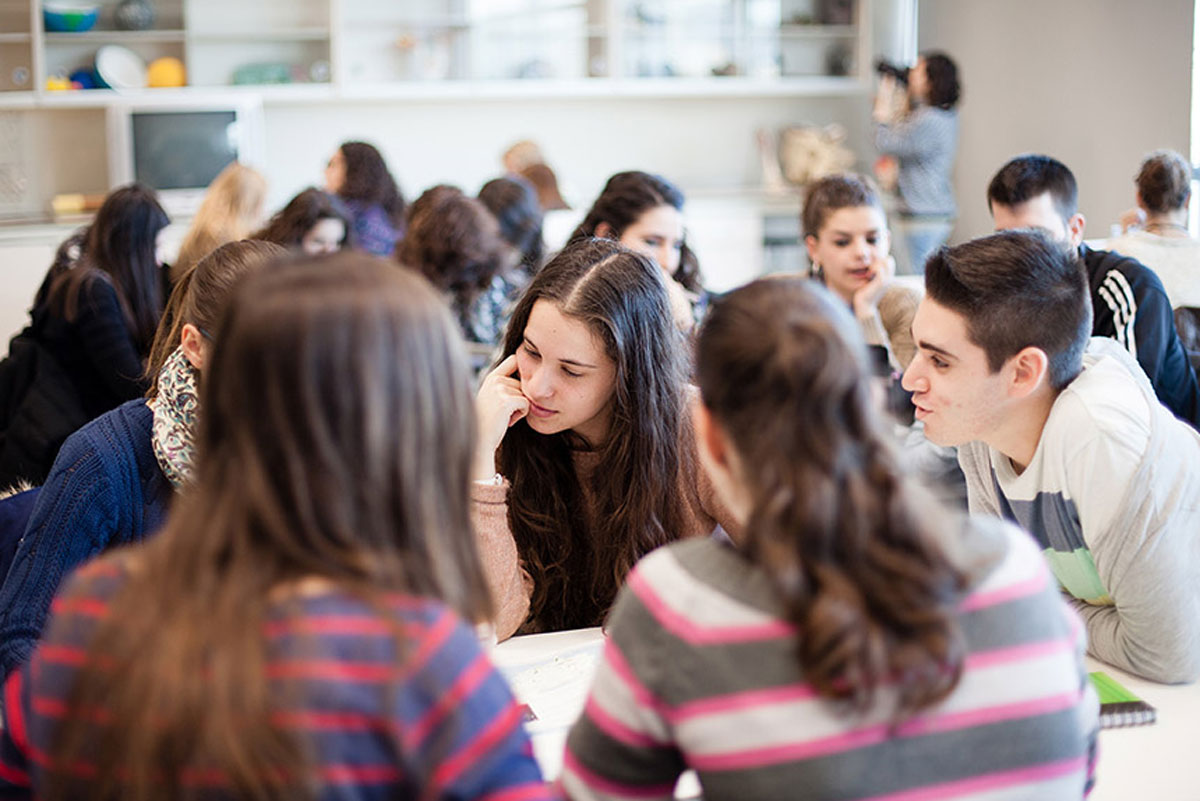Five University of Valencia projects will contribute to mitigating the effects of climate change on the marine and coastal system
- Science Park
- July 27th, 2022

A total of four projects from the University of Valencia and another mixed UV-CSIC have been selected for development within the framework of ThinkinAzul, the complementary Marine Sciences program of the Recovery, Transformation and Resilience Plan of the Ministry of Science and Innovation. These studies will help mitigate the effects of climate change on aquaculture production and the marine and coastal system.
Control of parasitic and bacterial pathologies in Mediterranean aquaculture, tools for detecting contaminants in aquatic fauna, artificial intelligence (AI) systems to improve coastal wind observation, or water electrolysation as an alternative to the use of pesticides , among others, are aspects with which the University of Valencia will contribute to mitigate the impact of climate change on the conservation of the marine environment and aquaculture production, within the framework of ThinkinAzul. This is the name of the program designed to address, from sustainability, the new challenges of Marine Sciences in terms of marine and maritime monitoring and observation, climate change, aquaculture and other sectors of the blue economy.
REMEDISA-ICHTHYOPARASITES is the proposal of the Marine Zoology Unit of the University of Valencia. The initiative aims to improve the management of parasitic pathologies that affect marine farming in the Valencian Community, and it does so from its experience in the Mediterranean Research Network on Health in Aquaculture: diagnosis, life cycles and parasite control (REMEDISA), “an infrastructure to respond to the current and future needs of aquaculture production in the Mediterranean, and a network capable of identifying and characterising the risks that could affect crops in a situation of global change”, specifies Juan Antonio Raga, professor of Marine zoology and main researcher of the project.
Currently, this team from the Cavanilles Institute of the University of Valencia is working on improving diagnostic and control techniques for parasitic pathogens of already established farmed species – sea bream and sea bass – and of new crops – meagre, amberjack or bluefin tuna. The development of management protocols for parasites and the training of new aquaculture professionals complete the general lines of this project, subsidised with 264,000 euros.
Carmen Amaro, Professor of Microbiology and Ecology, is the researcher responsible for the IMPACUMED project (Impact of bacterial pathologies in Mediterranean aquaculture) proposed by the PAZFP group (Pathogens in Aquaculture: zoonotic and fish pathogens) of the BIOTECMED institute of the University of Valencia. The study focuses on the design of new disease control strategies in farmed fish in the Mediterranean, based on a better understanding of both the interaction between fish and pathogens and the relationship between virulence, disease transmission and increased water temperature associated with global warming. The team is also working on the design of rapid methods for detecting pathogenic variants and on the development of easy-to-use and economically profitable oral animal vaccines. The project has obtained a grant of more than 234,000 euros.
The chemical substances present on the planet due to human action – organic contaminants, heavy metals, antibiotics, micro and nanoplastics, etc. – can alter the aquatic biota, in general, and the products of fishing and aquaculture, in particular, leaving the human being exposed to them. The presence, metabolism and effects of these pollutants are still largely unknown. BIOAQUOMA addresses this knowledge gap in an innovative way by profiling the chemical footprint – contaminants and their metabolites accumulated in fish – and the metabolome – altered endogenous metabolites due to an external stressor. BIOAQUOMA’s goal is to develop a high-performance metabolomic tool that is not harmful to aquatic biota – living organisms in the system – and capable of establishing the exposure of fish and other aquatic fauna to pollutants. The project, which has a grant of 205,000 euros, is directed by Yolanda Picó, professor in the area of Nutrition and Bromatology, a researcher at the Desertification Research Centre (CIDE, CSIC-UV-GVA).
WIND-COAST is a mixed project of the University of Valencia and the CSIC aimed at developing a new wind monitoring and estimation service on the Valencian coast, which will implement an innovative technology based on Artificial Intelligence (AI) in combination with massive wind data.
On the one hand, the initiative contemplates the development of the so-called Meteodron, a low-cost drone designed in collaboration with the University of Auckland (New Zealand), capable of obtaining wind fields with greater spatial resolution. On the other hand, quality controls and homogenisation of the data from the network of Valencian observation stations will be established, so that these are then treated by AI. “The development of AI tools gives us the opportunity to establish complex relationships between physical variables, reconstruct incomplete data, and explore early warning mechanisms against risks and threats on the coast associated with adverse weather events”, explains Verónica Nieves, CIDEGENT distinguished researcher at the Image Processing Laboratory (IPL) of the University of Valencia and IP of this project with César Azorín (CIDE, UV/CSIC/GVA). This integrating approach will facilitate the prediction of extreme episodes of wind speed in the coastal zone, which has a significant impact on ecosystems and aquaculture. The project has received a grant of 175,000 euros.
Lastly, within the framework of the E-ACUICULTURE project led by the REDOLí group (Department of Inorganic Chemistry) of the University of Valencia, monitoring systems for aquaculture farms and fish health will be developed based on the use of so-called electronic noses and tongues, optical and electronic devices that are awakening great interest in research due to their ability to reproduce human senses through arrays of sensors and pattern recognition systems. In addition, the possibilities of applying electrolysed water in fish farms will be tested to improve environmental health by avoiding or reducing the use of pesticides and antibiotics. Directed by José Vicente Ros Lis, the project has been subsidised with 144,000 euros.
The ThinkinAzul initiative brings together research teams from five autonomous communities – Andalusia, Cantabria, the Valencian Community, Galicia and the Region of Murcia –; forms part of the Recovery, Transformation and Resilience Plan of the Ministry of Science and Innovation and has a budget of 50 million euros, 10 of which have been awarded to projects in the Valencian Community, which are co-financed by the Valencian Government and the Ministry of Science, Technology and Innovation, and coordinated by the Aquaculture Institute of Torre de la Sal and the University of Alicante.
ThinkinAzul –or Marine Sciences program– is one of the first four complementary plans of the aforementioned Recovery Plan, designed to strengthen the capacities of the Spanish Science, Technology and Innovation System, and designed by the Ministry in line with European objectives cooperation and coordination of R&D&i policies between administrations. Biotechnology applied to Health, Quantum Communication, Green Energy and Hydrogen, Food and Agriculture, Astrophysics and High Energy Physics, Advanced Materials and Biodiversity complete the set of areas of action, integrated into the State Research Plan (2021-2023) and the Spanish Strategy for Science, Technology and Innovation 2021-2027.
More information:
















